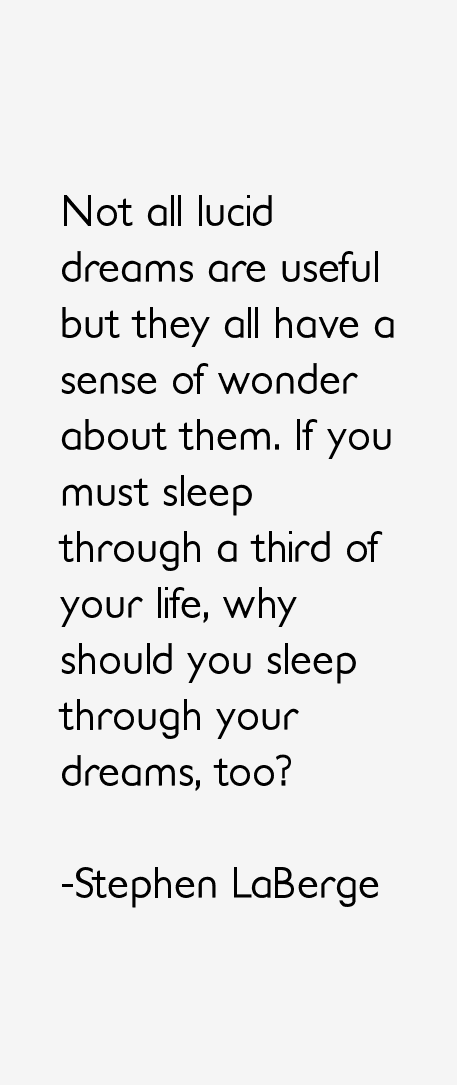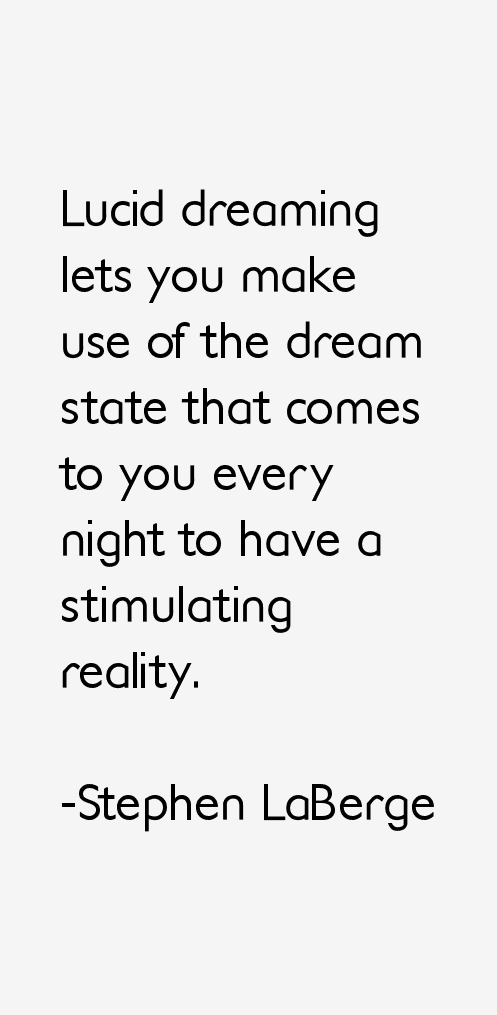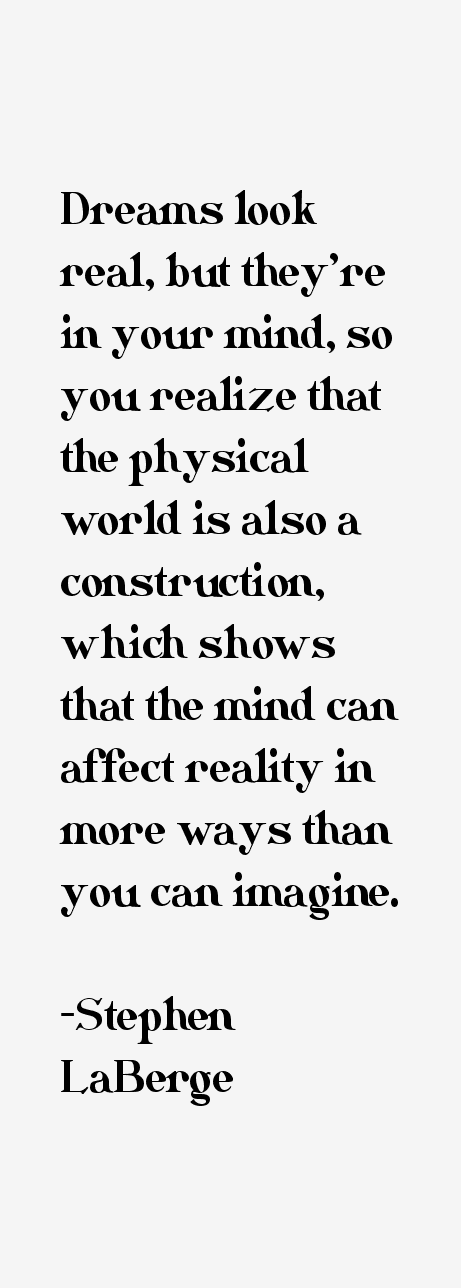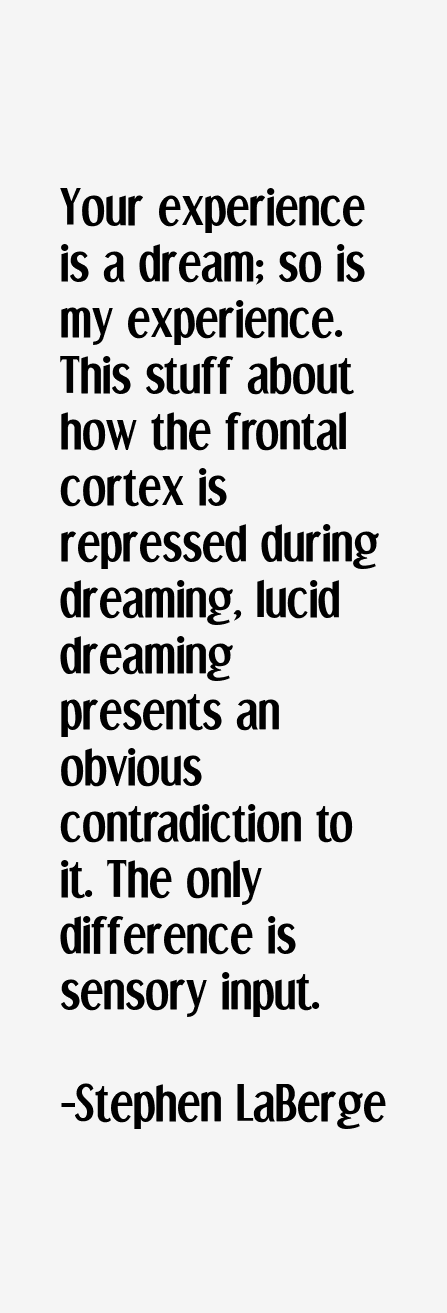Stephen LaBerge Quotes & Sayings
19 most famous Stephen LaBerge quotes and sayings (psychologist). These are the first 10 quotes we have.

“Lucid dreaming has considerable potential for promoting personal growth and self-development, enhancing self-confidence, improving mental and physical health, facilitating creative problem solving and helping you to progress on the path to self-mastery.”

“Not all lucid dreams are useful but they all have a sense of wonder about them. If you must sleep through a third of your life, why should you sleep through your dreams, too?”

“Dream research is a wonderful field. All you do is sleep for a living.”

“Lucid dreaming lets you make use of the dream state that comes to you every night to have a stimulating reality.”

“The consciousness of lucid dreaming is a cultural evolution. It's something that we are talking about and learning about, not biological evolution.”
“Although the events we appear to perceive in dreams are illusory, our feelings in response to dream content are real. Indeed, most of the events we experience in dreams are real; when we experience feelings, say, anxiety or ecstasy, in dreams, we really do feel anxious or ecstatic at the time.”

“Dreams look real, but they're in your mind, so you realize that the physical world is also a construction, which shows that the mind can affect reality in more ways than you can imagine.”

“Your experience is a dream; so is my experience. This stuff about how the frontal cortex is repressed during dreaming, lucid dreaming presents an obvious contradiction to it. The only difference is sensory input.”
“In most of our dreams, our inner eye of reflection is shut and we sleep within our sleep. The exception takes place when we seem to awake within our dreams, without disturbing or ending the dream state, and learn to recognize that we are dreaming while the dream is still happening.”

“What is consciousness? Our brain simulates reality. So, our everyday experiences are a form of dreaming, which is to say, they are mental models, simulations, not the things they appear to be.”
Stephen LaBerge Quotes Rating
No Ratings Yet
Leave A Comment
























